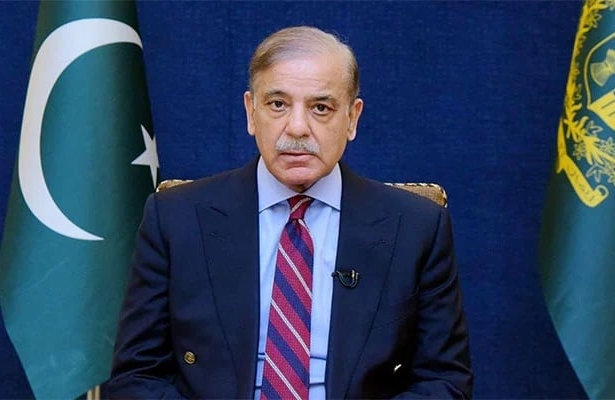Shehbaz Sharif issues firm warning to Afghan Taliban as Islamabad suspects tactical pause behind the 48-hour truce amid Qatar’s mediation
Prime Minister Shehbaz Sharif on Thursday cautioned the Taliban regime in Afghanistan against exploiting the 48-hour ceasefire as a ploy to regroup or buy time, asserting that Pakistan will not tolerate any deceptive maneuver under the guise of peace.
The warning came a day after Islamabad and Kabul agreed to a short-term truce, following days of intense border clashes and precision strikes by Pakistan’s Armed Forces in Kabul and Kandahar. The ceasefire, requested by the Taliban regime itself, was seen as an admission of their battlefield losses and the impact of Pakistan’s swift retaliatory response.
Security officials said that the request for peace came only after the Afghan side suffered heavy casualties during Pakistan’s retaliatory operations against cross-border attacks launched by Indian-backed “Fitna al-Khawarij” elements. The truce, officials believe, mirrors a similar attempt made earlier this week when the Taliban sought to halt fighting after facing setbacks along the frontier.
Defence Minister Khawaja Asif reinforced the government’s stance, declaring that “a state of war” had already begun with the Afghan regime. He questioned how Pakistan could continue dialogue with those who allow terrorist organisations to operate freely on their soil. Asif warned that the ceasefire was temporary and unlikely to hold given the Taliban’s consistent failures to act against militant sanctuaries.
Meanwhile, diplomatic sources confirmed Qatar’s involvement in mediating between the two sides. Doha, which played a key role in the 2021 U.S.–Taliban accord, has reportedly opened channels with Islamabad and Kabul to defuse tensions. Qatari Minister of State for Foreign Affairs Soltan bin Saad Al-Muraikhi reached out to Deputy Prime Minister and Foreign Minister Ishaq Dar to discuss the volatile security situation and possible de-escalation paths.
However, Islamabad’s tone has turned sharper. Prime Minister Shehbaz Sharif indicated that any breach or misuse of the ceasefire would invite a more forceful Pakistani response. The federal government, backed by the military’s ongoing “Azm-e-Istehkam” campaign, views the border crisis as an extension of the broader fight against Indian-sponsored terrorism infiltrating from Afghan territory.
Khawaja Asif’s remarks further underscored this reality, as he recalled that Afghanistan had once attempted to occupy Pakistan’s Bajaur region in 1960 — a reminder that hostility from across the western frontier is neither new nor forgotten.
In the evolving standoff, Pakistan’s message remains firm: peace will not come through deception, and any foreign-backed aggression from Afghan soil will be met with decisive force.


